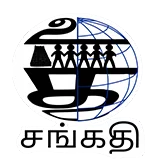
A new UNESCO Report released last week (Nov 2) shows that non-state actors in South Asia are more involved in every aspect of education systems than in any other world region. Highly competitive examination pressures and dissatisfaction with public schools led to the highest levels of enrolment in private institutions in primary and secondary education than in other regions, but also to extensive private tutoring and an explosion of education technology companies.
With fragmented systems stretched during the pandemic, and evidence of a shift of students from private to public schools, the report calls for a review of existing regulations on non-state actors and how they are enforced. While access to education has grown faster than in any other region in the past few decades in South Asia, learning levels are more than one third below the global average and growing more slowly than in the rest of the world. It recommends that all state and non-state education activities be viewed as part of one system, supported and coordinated ministries of education so that quality and equity can be improved.
The report draws on the global comparative research by the Global Education Monitoring Report at UNESCO and six regional partners: BRAC; the Institute for Integrated Development Studies; theInstitute of Policy Studies of Sri Lanka; Idara-E-Taleem Oaagahi(Centre of Education and Consciousness); the Center for Policy Research; and the Central Square Foundation. Combining the experiences of Afghanistan, Bangladesh, Bhutan, India, the Islamic Republic of Iran, Maldives, Nepal, Pakistan and Sri Lanka, it looks at occasions where the growing advent of private education has put equity under pressure but also at positive practices that have created cohesion across all actors involved.
Non-state actors are influential across all education levels in the region. In early childhood, the private sector is often the main provider, educating 93% of children in the Islamic Republic of Iran, for instance. At the primary level, private schools educate a quarter of students in Nepal, over a third in Pakistan and almost half in India. Low-fee private schools have flourished. Out of all new schools established in India since 2014, 7 in 10 are private independent schools. In Bangladesh, a quarter of primary and almost all secondary school enrolment is in private institutions. International schools have grown alongside the demand for English-language education, effectively doubling in Sri Lanka between 2012 and 2019.
Tertiary education is increasingly private due to insufficient public supply, covering over half of enrolment in Afghanistan by 2020. In Nepal, the limited capacity of the main public university in the country led to the establishment of non-state campuses. Teacher training institutions are also often private with teacher education only provided exclusively by the state in two countries, Bhutan and the Islamic Republic of Iran. In 2020, more than 90% of recognized pre-service teacher education institutions in India were privately funded through student fees.
Competitive education systems and labour markets have led to a surge in private tutoring, putting pressure on household finances. In Sri Lanka, the percentage of households spending on private tutoring increased between 1995 and 2016 from 41% to 65% of urban households and from 19% to 62% of rural households; it increased in Bangladesh between 2000 and 2010 from 28% to 54% in rural areas and from 48% to 67% in urban areas. The popularity of private tutoring has led to a rise of coaching centres; in India, their number may run into the hundreds of thousands.

